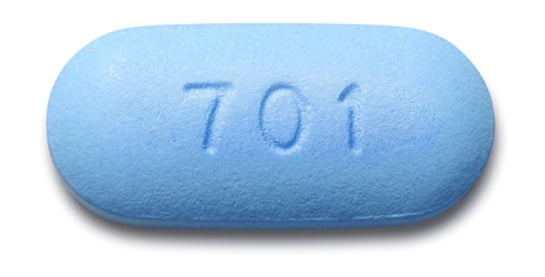The Iniciativa Profilaxis Preexposicion or Prexposure Prophylaxis Initiative (iPrEx) study found that daily oral pre-exposure prophylaxis (PrEP) - the use of ARVs to prevent HIV in high-risk groups - reduced HIV infection risk among participants who took the ARV Truvada by an average 43.8 percent. The clinical trial of 2,499 men who have sex with men (MSM) and transgender people was conducted at 11 sites in Brazil, Ecuador, Peru, South Africa, Thailand and the United States.
"We are as happy as anyone out there about the findings from this study, but fear that unless our countries reconsider their laws, many MSM will not benefit from its results," said David Kuria, chairman of the Gay and Lesbian Coalition of Kenya.
He noted that the frequent arrests of gay men in countries like Kenya already made it difficult for those who were HIV-positive to strictly adhere to their ARV regimen and would certainly create challenges in rolling out any pre-exposure prophylaxis policy.
The study found that PrEP was more effective in people at higher risk for HIV - based on reports of unprotected receptive anal intercourse - and among those who took the pill more consistently; for instance, those who reported using PrEP on 90 percent or more of the days saw 72.8 percent efficacy.
Implementation challenges
"Implementation of PrEP is highly unlikely in countries where access to ARVs is already seriously limited. Even in places where access to ARVs is more stable, PrEP will likely be targeted to groups most at risk for HIV, including MSM," said a statement from the Global Forum on MSM and HIV. "This would in turn require disclosure of same-sex behaviour, which could prove difficult or even dangerous in countries where violence, stigma and discrimination against MSM persists."
According to the AIDS Vaccine Advocacy Coalition, the UN World Health Organization (WHO) and UNAIDS must "move without delay to issue a statement clarifying the implications of the results” for MSM.
Globally, around 80 countries criminalize same-sex relationships, creating obstacles to HIV prevention.
Right to health services
A senior government official in Kenya says while homosexual activity remains illegal in the country, government HIV agencies are working to understand and better serve the MSM community with health services.
"Access to health is a right enshrined in the constitution, and this right does not discriminate between gay and straight," said Nicholas Muraguri, head of the National AIDS and Sexually transmitted infections Control Programme, NASCOP.
| Read more | |
The study's authors urged WHO, UNAIDS and other global and national HIV policymaking bodies to develop clear recommendations for next steps in the study of PrEP.
According to the Gay Men's Health Crisis (GMHC), an NGO providing HIV services in New York, while the study's results are welcome, it is important to keep using other prevention methods.
"We know that by far the most effective prevention technologies remain condoms and lubricant, and clean needles," said Marjorie J Hill, chief executive officer of GMHC. "We support further research to develop effective biomedical prevention interventions, even as we spread the word about what works best now."
kr/mw
This article was produced by IRIN News while it was part of the United Nations Office for the Coordination of Humanitarian Affairs. Please send queries on copyright or liability to the UN. For more information: https://shop.un.org/rights-permissions





